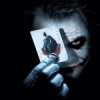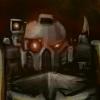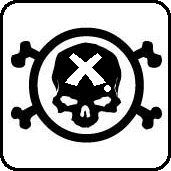-
Posts
285 -
Joined
-
Last visited
About SpecialIssue

Contact Methods
-
Website URL
http://
-
ICQ
0
Profile Information
-
Location
Not the Warp
-
Faction
Guardian Eagles
Previous Fields
-
Armies played
Vanilla Marines
Recent Profile Visitors
SpecialIssue's Achievements
-
 SpecialIssue reacted to a post in a topic:
No primarchs ...
SpecialIssue reacted to a post in a topic:
No primarchs ...
-
 SpecialIssue reacted to a post in a topic:
No primarchs ...
SpecialIssue reacted to a post in a topic:
No primarchs ...
-
 SpecialIssue reacted to a post in a topic:
=][= 25 YEARS OF THE BOLTER AND CHAINSWORD =][=
SpecialIssue reacted to a post in a topic:
=][= 25 YEARS OF THE BOLTER AND CHAINSWORD =][=
-
 LameBeard reacted to a post in a topic:
Adeptus Custodes Shield-Captain + Battleforce + Codex
LameBeard reacted to a post in a topic:
Adeptus Custodes Shield-Captain + Battleforce + Codex
-
 tinpact reacted to a post in a topic:
Adeptus Custodes Shield-Captain + Battleforce + Codex
tinpact reacted to a post in a topic:
Adeptus Custodes Shield-Captain + Battleforce + Codex
-
 Karak Norn Clansman reacted to a post in a topic:
SpecialIssue's Analysis of the 41st Millennium
Karak Norn Clansman reacted to a post in a topic:
SpecialIssue's Analysis of the 41st Millennium
-
 Karak Norn Clansman reacted to a post in a topic:
Are Battleships actually weak in naval combat?
Karak Norn Clansman reacted to a post in a topic:
Are Battleships actually weak in naval combat?
-
 Karak Norn Clansman reacted to a post in a topic:
SpecialIssue's Analysis of the 41st Millennium
Karak Norn Clansman reacted to a post in a topic:
SpecialIssue's Analysis of the 41st Millennium
-
 Noctis reacted to a post in a topic:
Adeptus Custodes Shield-Captain + Battleforce + Codex
Noctis reacted to a post in a topic:
Adeptus Custodes Shield-Captain + Battleforce + Codex
-
 jaxom reacted to a post in a topic:
Adeptus Custodes Shield-Captain + Battleforce + Codex
jaxom reacted to a post in a topic:
Adeptus Custodes Shield-Captain + Battleforce + Codex
-
 Zoatibix reacted to a post in a topic:
Adeptus Custodes Shield-Captain + Battleforce + Codex
Zoatibix reacted to a post in a topic:
Adeptus Custodes Shield-Captain + Battleforce + Codex
-
 Subtleknife reacted to a post in a topic:
Adeptus Custodes Shield-Captain + Battleforce + Codex
Subtleknife reacted to a post in a topic:
Adeptus Custodes Shield-Captain + Battleforce + Codex
-
 Aarik reacted to a post in a topic:
Adeptus Custodes Shield-Captain + Battleforce + Codex
Aarik reacted to a post in a topic:
Adeptus Custodes Shield-Captain + Battleforce + Codex
-
IMO None have matched the original artwork. From the original Visions of Heresy. The Customs should look tall, regal, statuesquely proportioned, as the Emperor's perfect hand-crafted confidants and bodyguards, in comparison to the often ugly giganticism of the Astartes. Modern art and models don't quite communicate it to the same degree. I think in particular the weapons on the models are far too big, losing the elegance they are supposed to evoke. The Aquilon terminators from Forgeworld I think do the best job of matching the art and nailing the mix of elegance and armour that is the Custodes.
-
 SpecialIssue reacted to a post in a topic:
The Horus Heresy - A Retrospective?
SpecialIssue reacted to a post in a topic:
The Horus Heresy - A Retrospective?
-
Oh I don't know - I think the meta has always evolved to an equally competitive level in whatever edition it's in. 4th was the edition of mechanisation and rhino rushes because it was effective given the points scaling and options available. Bolters weren't amazing even back then, but everything was in general less lethal, (or the super lethal weapons were much rarer) which was why 20 Bolter shots in 12" was a viable and competitive thing. Heck, the super norm-core pick of 4x devastators with missile launchers was considered the most optimal loadout when balancing cost, utility and effectiveness of the weapons available. There were lots of exploitations and unbalance as any other - the Tau fish of fury, dual daemon prince lash whip bull:cuss:, monstrous creatures being absolute can-openers, outflank and outflank-denying shenanigans - bikers ruled as well, with every single HQ option mounted on bikes to maximise toughness, mobility and firepower with almost no downside. I like that edition. It had jank, but in the end it did provide a game that was streamlined in the way it played out while allowing and enabling a lot of verisimilitude in the way units acted (vehicle pen chart, melee being pretty decisive with running down fleeing opponents in sweeping advance, transports being important, rareness of powerful weapons, etc).
-
 SpecialIssue reacted to a post in a topic:
The End and the Death Part I, II, III, ...
SpecialIssue reacted to a post in a topic:
The End and the Death Part I, II, III, ...
-
 SpecialIssue reacted to a post in a topic:
The Horus Heresy - A Retrospective?
SpecialIssue reacted to a post in a topic:
The Horus Heresy - A Retrospective?
-
 SpecialIssue reacted to a post in a topic:
The Horus Heresy - A Retrospective?
SpecialIssue reacted to a post in a topic:
The Horus Heresy - A Retrospective?
-
 SpecialIssue reacted to a post in a topic:
The Horus Heresy - A Retrospective?
SpecialIssue reacted to a post in a topic:
The Horus Heresy - A Retrospective?
-
 SpecialIssue reacted to a post in a topic:
The Horus Heresy - A Retrospective?
SpecialIssue reacted to a post in a topic:
The Horus Heresy - A Retrospective?
-
 SpecialIssue reacted to a post in a topic:
The End and the Death Part I, II, III, ...
SpecialIssue reacted to a post in a topic:
The End and the Death Part I, II, III, ...
-
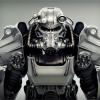
The End and the Death Part I, II, III, ...
SpecialIssue replied to skylerboodie's topic in + THE BLACK LIBRARY +
Hm. You suppose that the galaxy-wide Imperium is not significantly worse, on a larger and longer timescale than any regime or period of time that has gone before, thus meaning there is no incentive for the gods to seek to bring it about. That is the crux of your point. On that fundamental level, I believe the opposite. I believe that the Imperium is the worst possible regime imaginable, that both maximises and sustains the emotion seen in humanity and the galaxy, through its quadrillions of minds conditioned to live under and propagate oppression, inequality, religious frenzy and irrational hate. What other period in history has humanity been as powerful, but collectively as unfree and miserable for so long? That is the thematic basis of the Imperium - the industrial production of power and misery. This is seen through the 30+ years of W40k and the very blurb that has introduced readers to the entire ethos and focus of this universe since the beginning. "To be a man in such times is to be one amongst untold billions. It is to live in the cruelest and most bloody regime imaginable." As for the sidenote about the shaman - who knows who planned what from when? It could have all been foreseen when they reincarnated by either, both, or none of the parties. We have no idea so it is useless to speculate. Is 40k a deterministic universe, given the Warp is timeless? The shamans made their decisions, the gods made theirs, and the sum total is W40k, that is all I need to know. And from that sum, I think Chaos came out on top from 30k onwards. -

The End and the Death Part I, II, III, ...
SpecialIssue replied to skylerboodie's topic in + THE BLACK LIBRARY +
I think that the ruinous powers wanted everything to happen the way it did. Why is it the immediate assumption that Chaos isn't winning, when it has been winning for 10,000 years? The gods don't grow strong from territory or even worship (that merely attracts their attention) - they grow strong from emotion, no matter where it flows from (imagine the despair that Gulliman felt upon awakening in the 41st millennium - Nurgle has a very special place in his garden for that morsel). W40k has always quietly said, piecing together the implications of the lore, that the Imperium is the ideal vessel to cultivate these emotions, and thus Chaos. They want emotion, not Terra. They've ensured that their chosen vessel of humanity will be mired in a half-life of decay and frothing fanaticism that won't be burnt out in a generation, but continue to propagate and dominate for an almost geological amount of time, across an entire galaxy. "Finishing the job" meant that without the Astronomicon, the Imperium fragments / implodes, and its loathsome ideas and culture aren't able to propagate and consolidate to imprison the entirety of their chosen species of mankind and perpetuate the cycle of suffering. The Emperor tried to play them, but He got played. It was either ascension to the Dark King at the expense of humanity (actually fulfilling everything Horus initially feared for!), or His suffering of an eternity for the stagnation of humanity to feed their thirst. I mean it does say... "Forget the power of technology, science and common humanity. Forget the promise of progress and understanding, for there is no peace amongst the stars, only an eternity of carnage and slaughter and the laughter of thirsting gods." Sounds like a pretty good time for the gods to me - don't think they could have come up with a better galaxy thanks to their tools, Horus and The Emperor. -
From a wonderful series of art and flavourful text that @Karak Norn Clansman has been posting on his own page on the B&C, that wallows in the disgusting nature of humanity and the Imperium in the 41st millennium. I think this problem of the Emperor and his plan is a wider one that GW is confused about - are the Emperor's and Imperium's excesses and violence needed? Is humanity the protagonist in this universe, worth even rooting for? I'd argue that the healthy answer is no. But we are humans, we like to see ourselves as right, or at least powerful. GW wants to make money as well, with a palatable product, and those two things align to make the narrative shy away from the straight answer that no; humanity in the 41st millennium and even the 31st (with the way they fleshed out the nascent Imperium) was just another monster that courted its own destruction. The actions the Imperium undertake are genocidal and unnecessary - yet are brushed aside as 'necessary' by the narrative with little to no reflection on how horrible those actions were. This is something else that makes 40k different from all other scifi - it's pessimistic and loathsome view of humanity, that focuses on us at our worst, for our best has already past. Humanity as the powerful, elder, corrupt and decrepit big bad that deserves to be destroyed - because that is exactly what 40k points so clearly towards thematically, it's just that no one wants to commit to the bit. "No, we needed to ensure the human race was united... we needed to wipe out every xenos race we came into contact with... we needed to violently and quickly enforce compliance across the entire galaxy to one warlord on Terra." Why? The warp was calm after the millennia of the Age of Strife. Wouldn't all this violence and turmoil in such a short time just bring the attention of the gods onto us? What about all the alternate springs of a human resurgence that could have happened but were stamped out with no remorse, or instances with xenos and us cooperating? Why didn't we just leave worlds that didn't want to join alone (with appropriate safeguards)? The Emperor is said to have been embodiment of everything great and substantive about our species - and that includes our capacity for hubris. Perhaps the tragedy is that we got what we deserved. But no-one wants to hear that.
-
After all these years - was it worth it? To have this universe's foundational myth and legend so thoroughly calcified into a canon that will never please everyone, that is forever beholden to the inevitable imperfections with quality and writing and characters introduced by its various authors. To now have exhausted an IP and story that was only built up in its importance and gravitas through the lack of information about it over 20 years. Restraint on what is not shown is as important as the creativity guiding the IP. They are bankrupt without one another. It has turned the setting into a story, one which will become bloated and/or diluted in the coming years as all IPs that are run this way are; drilling down to every level of mystery and intrigue (Dark Age of Technology mini-series anyone?) to various levels of quality till every single well is dry... and then is inevitably rebooted. I have watched near-every single IP I enjoyed go down this pipeline, and I now force the same happening to 40k. It might take decades - but inevitably, the well will run dry. The setting but not a story method was one of the greatest things about this universe that has ensured it's longevity and artistic integrity, and is one of the things that set it apart from all other scifi universes. I have waiting to say this for many years, and this is perhaps the most relevant time to say it - but I believed from the beginning that the HH series was a mistake, told the way it was. Angels of Darkness. Lord of the Night. The Night Lords series. Those are how the Heresy should have been viewed, as a lost time long ago remembered like shattered glass through different, unreliable viewpoints. When the lore revelations of AoD and LotN first came out, they provided fodder for discussion for years, as they provided a story window to that lost era, without losing any of the endless potential and mythic grandeur of the Heresy. They allowed you story and lore without taking away the agency of the readers of the setting. They threw more potential into the sandbox and threw up more lore questions rather than answering them. Horus v the Emperor is now a step-by-step fight that you can read about - but what if that portrayal didn't live up to my expectations? I no longer have the latitude and authority to engage with others on equal footing, all contributing our own ideas to what 40k is in a very real, creative and central way. My and everyone else's views or imagination and extrapolation on this foundational lore tidbit have been overruled by Dan Abnett, codified as lore law on wikis that spoil the entire story in solid paragraph dumps, held as immutable by gatekeepers unwilling to engage with anything past the rules as written. This was all started as a hobby to collaboratively engage in with "your own army guys", not a fandom where we merely consume content shovelled out the door. It feels like W40k was a sandbox that they have been filling with superglue. And the HH series was a major part of that.
-

The End and the Death Part I, II, III, ...
SpecialIssue replied to skylerboodie's topic in + THE BLACK LIBRARY +
I think as this series' demi-gods, the Primarchs and perhaps even the Emperor should be seen as and were written as expressions of humanity's various attributes and follies, in the Greek gods style. Hubris, jealousy, honour, anger etc. Both for obvious thematic reasons, and as a logical extrapolation of the (newish) lore regarding their nature as partly-warp beings - raw emotion and psychic themes have gone into their making / being / who they are. In the Greek god style, that means they are going to make stupid, childish, selfish, bizarre, (self-)harmful decisions that screw things up, whether their intentions are for good or ill. The execution and consistency of this is extremely rocky throughout the series, with multiple major characters seeming to backtrack their emotional arcs / not engaging with previous developments; this is the problem, not the idea that they are beings of emotion. I didn't mind the idea of Horus in actuality not being able to execute the final blow - it's the road and many backtracks that didn't actually lead us here that are the problem. The more severe brainwashing of space marines, only happened in the 2nd founding and the codex reforms by Guilliman (are they going to touch on this fact in any coming books, tarnishing the protagonist of the setting?), precisely to reduce these human traits and ensure loyalty; so chaos marines are more in touch with their humanity than the loyalists in the 41st millennium, a vicious irony which is also pointed at directly by Khan's realisation of what Sigismund represents, and adding another layer to the perverse tragedy of the universe. For the next 10,000 years, when a chaos legionnaire yells taunts and criticisms of the Emperor, he might for a moment pity the glazed, glassy eyes of his loyalist counterpart, forever locked in a sense of dutiful fervour, whose mind is unable to even comprehend or engage with concepts such as that the Emperor may have been flawed. -

The End and the Death Part I, II, III, ...
SpecialIssue replied to skylerboodie's topic in + THE BLACK LIBRARY +
The Imperium and the culture it promotes is corrupt, oppressive, moribund, xenophobic, militaristic and schismatic on a galactic scale. It perpetuates the emotions that chaos thrives on by also perpetuating the dominance of the human race through its heavy-handed and extreme methods to extract military and industrial power, and its efforts to control it's population's mindset. The Imperium's success expands and ensures the reproduction of the trillions of untrained and unprotected emotional minds in some of the worst conditions and aggressive cultures imaginable. Imagine the despair and depression in the hives. Imagine the anger at your corrupt lords, or the warrior cults allowed to thrive on martial worlds for better soldiers, or the blind hatred for any aliens, or the ambitious power grabs and schisms and all the endless wars these provoke. That is suffering on a scale only the gods could dream of, over a timescale only they can grasp. The heart of 40k is not a struggle with an external foe or outer incarnation of evil independent of us - but mankind's eternal battle with the very things that make us human. -

The End and the Death Part I, II, III, ...
SpecialIssue replied to skylerboodie's topic in + THE BLACK LIBRARY +
-

New art by Adrian Smith
SpecialIssue replied to grailkeeper's topic in + NEWS, RUMORS, AND BOARD ANNOUNCEMENTS +
Obsessive madness is a great phrase to describe it. The almost-overwhelming level of intricate detailing in a lot of the works is very gothic, and conversely the detailed minutiae I think contributes to making the universe seem even larger and more horrifying - imagine all that horrifying gothic detail, not just on one or two subjects in a picture, but across an entire room surrounding you, or across an entire battlefield or city. His style (and Kopinski's as well in particular) straddles a blurry line between interpretive / artistic, and representative / 'realistic', all while evoking a feeling and sense of setting unlike any other scifi out there that is immediately identifiable. The idea of a dark far future 40,000 years away in time and space is inextricably linked to their art for me. -

The End and the Death - Volume III
SpecialIssue replied to Lord Marshal's topic in + NEWS, RUMORS, AND BOARD ANNOUNCEMENTS +
None of these pics are supposed to be 100% accurate representations of what these two looked like at their final encounter - the inclusion of the other soldiers in the background / around them I think is pretty indicative of that. Rather they are supposed to be impressionist, seen as almost in-universe artwork of the encounter in my eye. John Blanche's work stands as the pinnacle of this, evoking the scribbled, messy mania of a psychic vision of an astropath across lightyears of space and time. W40k is not a clean, small, or bright scifi universe, and its artwork needs to reflect this character. And those themes need to bleed into this scene, and its weight in this universe. Does the art evoke the gothic grandeur of the final encounter between these two gods? I don't think I am looking for action, or movement, or even clarity in the picture, or what their faces even look like. That all brings it down to mortal level, not myth and legend. What I am looking for is the air of gothic grandeur, and Adrian Smith's (like all his pieces) hits these notes the hardest for me. The Emperor and Horus look almost inhuman, unknowable, exaggerated. The darker, rich colours evokes a feelings similar to viewing old paintings done in the styles of baroque or romanticism. Baroque and gothic, are both characterized with lots of intricate detail, and Smith always include almost overwhelming detail on the characters and focus of his images that is picked out starkly and with max contrast, while the backgrounds are relatively simple or flat. It fits the vision, themes and culture of 40k. I think the newer images have too much movement, the wrong colouring and detail to evoke that air of gravitas I would like in an image of Horus and the Emperor. Like all 40k images, I think they would do much better in perhaps greyscale, but their lines and action-orientation still does not lend itself well to gothic grandeur. -

Your faction lore & look over time - feelings?
SpecialIssue replied to sonsoftaurus's topic in + AMICUS AEDES +
Yes exactly - I long had the idea that the top coterie of the Necrons, the ones who basically betrayed their entire race into the living metal, would have basically ascended to god-like/C'tan-like form as reward. And some of them, with their new power, would be plotting to eliminate and replace their C'tan lords, as their ruthless Darwinist religion / beliefs would have demanded. Basically, bringing what the modern, reimagined fluff said happened millions of years ago to play out now instead. -

Your faction lore & look over time - feelings?
SpecialIssue replied to sonsoftaurus's topic in + AMICUS AEDES +
Thinking about it, I actually dislike most of the factions designs that have been made. To me, it's all gone in the most generic, boilerplate predictable and uninspired direction, that slowly (or quickly, in the case of the Wolves) flanderizes the faction to a basic generic trope, rather than doing what makes 40k compelling - fusing multiple different tropes into something new. Tau became a faction that is just battlesuits, where larger and larger battlesuits are the solution to everything and only concept explored. Part of the walkers, walkers, everywhere for everyone trend that happened 5-7th ed (Dreadknights, Wraithknights, Centurions, etc). Before that, Tau combat doctrine to deal with the ludicrously large walking idols of the backward races such as the Imperium and Orcs was to use responsive air and space power to apply firepower to destroy them. It was modern military thought, combined with anime-inspired robot suits, and tied off with the fact that the faction is actually a coalition of races, something that is rare and thus interesting in 40k. And don't get me started on the absolutely ham-fisted lore idea of an unintentional god of the greater good etc. They couldn't come up with any other way of injecting some faction conflict or interest? Which brings us to the Demiurg / Squats. Why did they have to make Squats the most boring faction visually and thematically? Generic sci-fi design, no character or strong visual vision to make the faction's culture and mindset stand out - basically short, even more generic scifi space marines. They should have kept the modern interpretation of the Squats as a survivor race that is hell-bent on fulfilling their grudge against Humanity as part of the Tau Coalition, after their implied genocide; as it was hinted / glanced at in BFG. Deathwatch. Why did you have to dilute this concept into yet another super special space marine faction / chapter that also manages to be so generic? Each Chamber Militant of the major Ordos of the Inquisition used to have a unique character, mandate and reach that matched that of its Ordos. The Deathwatch, in keeping with it's trope as pragmatic, kitted out, black/spec ops with small teams of hand-picked marines from various chapters was definitely different from the other two Ordos, and should have stayed that way. So unlike the others, its almost an adhoc organisation that operates in the grey and shadow, with Marines with a less puritan, more pragmatic mindset selected for their special skills and experience, and for specific objectives / tours of duty. The Ordo Xenos is generally seen as the most grounded, pragmatic, and under-resourced/underhanded of the three - it's Chamber Militant matches this. But no. It's bloated as a faction into yet another galaxy-spanning permanent force with its own super fortresses and armies. Blegh. Black Templars as Emperor-worshippers. Why was it necessary to suddenly refute, about-face and come out and state they worship the Emperor, in contradiction to perhaps a decade plus buildup in the opposite direction - the only reason I can think of is to make the faction easier to digest for the modern audience. The Black Templars used to burn cities and put nations to the sword while wearing tabards, braziers and chains; but for a person they fanatically believed was not a God, but merely a great Man, in a violent cult of personality that has burned for 10,000 years. That is far more terrifying and causes far more pause than the straight forward copy-paste of crusaders into space which they are now. I could go on. Suffice to say, I have been unimpressed with near-every major 40k development for a long time from both a narrative and faction design standpoint. -

Your faction lore & look over time - feelings?
SpecialIssue replied to sonsoftaurus's topic in + AMICUS AEDES +
I greatly miss the Oldcrons. They could have simply kept the C'tan in charge and expanded the lore of the Lord and ladies under them, and what their worship / ideologies under the C'tan would have meant. This is the character many wanted in the faction, fused to the cosmic horror the gods of the material universe inspired. And yes, all the terrifying deeper implications of what the active C'tan had in store for humanity that would have rocked the Imperium to its core and a renewal of the ancient War in Heaven. 40k was about the false, mouldy grandeur of humanity, caught between two vastly more great and horrible pantheons, of the churning Warp and the cold material universe. -

More Firstborn retired
SpecialIssue replied to Casual Heresy's topic in + NEWS, RUMORS, AND BOARD ANNOUNCEMENTS +
40k has gone though multiple shifts in tone, rules, faction identities, plots and backstory. As a mass-market consumer franchise, it will move on from your tastes, one day, probably. There will be entire generations of hobbyists that will have grown up knowing only developments or units that you might think are weird or unattractive, or not compatible with your headcanon. As the old opening blurb went, which has since been altered; ...the universe is a big place, and no matter what happens, you will not be missed.
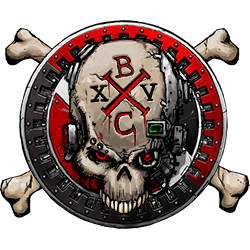


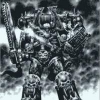

.thumb.jpg.b6a169e7e396629c75665eede4676d63.jpg)
